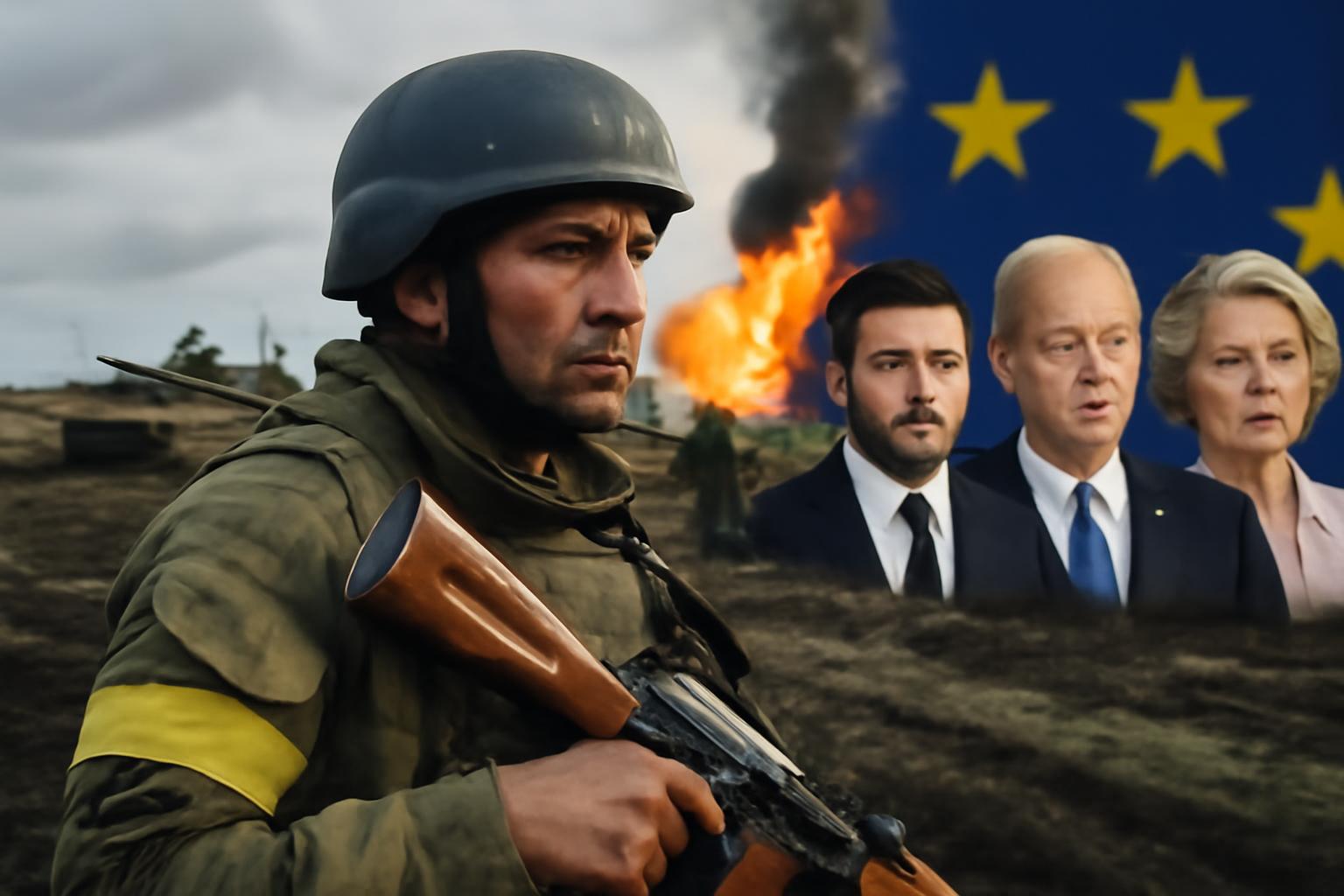The situation on the ground is described in stark terms: Zelensky warns of a renewed Russian push in the Donbass, with Pokrovsk—an important logistics hub—found to be within a concentrated forefront of up to roughly 100,000 troops. Russia’s intention to press a major offensive is presented as real, while Ukraine proclaims it is prepared and confident in its control of the situation. Nightly strikes by drones and missiles have caused casualties and infrastructural damage across Saporischschia and other regions; the toll includes civilians, among them children, and extensive damage to homes and utilities. Ukraine’s claim that its air defenses repelled a vast majority of the incoming weapons—537 drones, 37 cruise missiles, 9 ballistic missiles—nonetheless leaves debris and disruption in its wake. In Kyiv, another assault has left scores dead and the EU Representation building heavily damaged. Zelensky appeals for decisive action from Europe, the United States, and the broader world, insisting that new sanctions—targeted at banking and energy sectors—are required because words have become insufficient. EU foreign ministers are convening in Copenhagen to chart further steps to constrain Moscow’s aggression.
From my perspective, what we witness is a brutal test of political order and of the limits of centralized power. The impulse to resolve deep, intractable conflict through sheer force—mass mobilization, strategic bombardment, coercive diplomacy—reveals a fundamental misreading of how complex coordination actually holds a peaceful society together. The economy, people’s lives, and the very fabric of civil order depend not on how loudly a ruler proclaims the right to command but on the reliable functioning of rules that enable dispersed knowledge to guide action. War is not a clean exercise in principles but a fusion of coercion and miscalculation; it demonstrates that large governments, when driven by zeal to impose order from above, displace the delicate, local knowledge that underpins effective defense, recovery, and daily life.
The insistence on sanctions as the primary instrument of moral leverage embodies a similar danger: once we treat banking and energy as weapons, we narrow the space for ordinary exchange and cast commerce as a battlefield. Sanctions can punish the aggressor, but they also risk entrenching the very dependencies, distortions, and harms they purport to cure. Targeted coercion carries its own moral and practical limits; it must aim to diminish the war-making capacity without collapsing the livelihoods of innocents who depend on the ordinary functioning of markets and law. The appeal to Europe and to allied capitals to “do something” cannot become a license for swift, sweeping interventions that undermine the rule of law or multiply the consequences for civilians. If we prize liberal order, we must preserve the institutions that allow voluntary cooperation to adapt to danger: predictable laws, protected private property, open markets, reliable currency, and the rule of law that restrains the state even in moments of peril.
This conflict also exposes the vulnerability of security in a world of interconnected economies. The energy and financial webs that bind nations together are not mere conveniences; they are the channels through which cooperation becomes resilient and peaceable. In threatening these channels, there is a pressure to retreat into autarkic planning and to replace face-to-face trust with command from above. Yet the experience of a highly integrated system is that strength grows not from domination by a central authority but from the freedom of individuals to innovate, to form alliances, to reallocate resources as information changes. The danger lies in mistaking cruder, more centralized instruments for genuine security. The wiser path is to strengthen the legal framework, to defend the sovereignty and property rights of all peoples, and to cultivate a system of international exchange and mutual accountability that makes aggression less attractive and less sustainable than the alternative of peaceful cooperation and competition.
If the intention is to safeguard liberty and human welfare, then the response to this aggression must be calibrated to reinforce, not undermine, the conditions that make peaceful, prosperous order possible. That means defending sovereignty and democratic norms, supporting legitimate defense, and pursuing sanctions with careful regard for both the aims of restraint and the costs to civilians. It means recognizing that true strength lies in the ability of free peoples to coordinate through lawful, decentralized means rather than in the omnipresent reach of a central power. And it means continuing to trust in the spontaneous coordination of countless voluntary actions—prices, incentives, and contracts—that, in the long run, yield not only resilience in the face of aggression but the possibility of a durable peace grounded in liberty.
